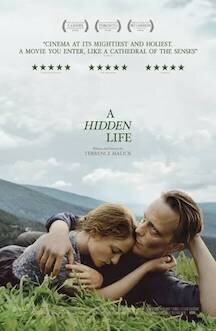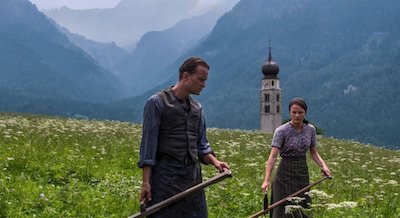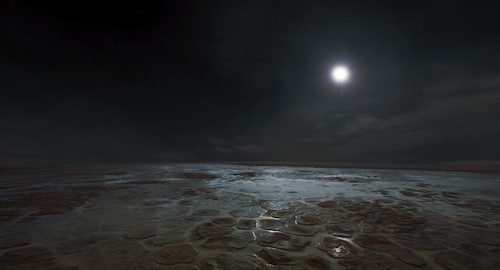Direction: Terrence Malick
Country: USA
After a couple of trivial drifting practices (Knight of Cups; Song to Song), director Terrence Malick returns with A Hidden Life, a structurally solid WWII account based on the real-life story of Austrian pacifist farmer Franz Jägerstätter. Refusing to swear loyalty to the Nazi regime, whose principles go entirely against his Catholic and moral ideals, Franz (August Diehl) is incarcerated at Tegel prison in Berlin, tortured, and then sentenced to death. Unintentionally, he’s making the life of his beloved wife, Fani (Valerie Pachner), a living hell. It’s because the people of St. Radegund, their small Austrian village, not understanding why Franz rejects his duties to the fatherland, cease to assist Fani in the heavy work in the fields. Notwithstanding, the latter’s unconditional support of her husband’s cause is laudable.
Franz asks the bishop of Salzburg (Michael Nyqvist): “If leaders are evil, what do we do?”. Considered a traitor, this man and his brave wife will endure years of solitude, emptiness, and misery. Their existential questions - “God, why am I here? Why did you create us?” - are articulated with that inner-centered, melancholic voice-off so typical of Malick’s deliberate style, while the visuals, preserving some of the oneiric aura of his previous works, offer something new in the hands of camera operator-turned-cinematographer, Jorg Vidmer. However, clocking in at nearly three hours, the film is exhaustingly overlong, with Malick taking too much time detailing a canvas that could have been painted with less brushstrokes. This setback is somewhat compensated with an accessible, less subjective script.
Opting for a non-exploitative presentation, Malick gets it right in the end, but at the expense of a lot of patience from the viewers. A Hidden Life is disconcerting both for the right and the wrong reasons.






